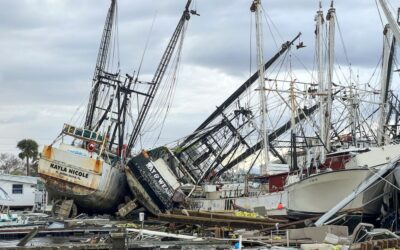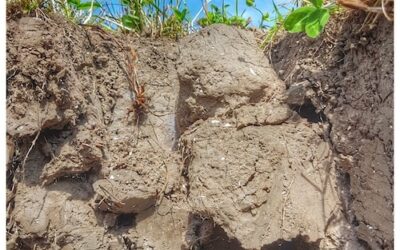This post was originally published on Climate Links
Young Cambodians Take the Lead on Climate Action
ASchindler
Tue, 05/14/2024 – 12:49
Cambodia’s biodiversity and forests face a myriad of threats, including widespread deforestation, increased poaching, rising demand for illegal wildlife products, and inadequate waste management. At the same time, young Cambodians are increasingly recognized as powerful voices for climate action and protection of their country’s natural resources.
The USAID Cambodia Green Future Activity (CGFA) works to build citizens’ and civil society organizations’ knowledge and skills to use evidence-based communication to support biodiversity conservation and sustainable natural resource management. To achieve this goal, CGFA is leveraging the enthusiasm of Cambodia’s environmentally conscious youth to advocate for social change and policy reform by uniting high school and college leaders to form Green Groups.
Image

Green Groups Share Important Messages Throughout Cambodia
CGFA Green Groups have been instrumental in the design and implementation of social and behavior change communications toolkits. These toolkits promote actions that counteract environmentally harmful activities and harness the power of social media to reach wider audiences. The toolkits focus on three topics crucial for combating climate change and protecting Cambodia’s natural resources: reducing demand for unsustainable luxury wood furniture (#Talk2ProtectForests), reducing consumption of wild meat (known locally as “bushmeat”) (#Talk2ProtectOurWildlife), and stopping littering (#Talk2StopLittering). To date, the Green Groups have used the toolkits to meet with over 800 youth across the country and have reached thousands more through social media, resulting in young people becoming a driving force for ensuring Cambodia’s sustainable future.
CGFA’s Green Groups don’t just stop at targeting youth. After a baseline survey conducted by the activity revealed low levels of youth engagement in policy review and consultation, CFGA built a platform where youth can directly interact with policymakers and law practitioners to better understand and inform current laws and regulations. Through this platform, Green Group members strengthened their policy analysis skills, empowering them to share their views and concerns with experts, influencers, policymakers, and decision-makers.
Helping Cambodians Say “No” to Luxury Wood Furniture
In Cambodia, consumer preference for traditional hand-carved wood furniture contributes to the demand for luxury hardwood. During Green Group outreach sessions, youth leaders share with their peers the ecological significance of forests and the negative environmental impacts of unsustainably cutting down precious trees to create this furniture. Additionally, Green Group members collaborate with CGFA to co-create social media content highlighting the effects of deforestation; one Facebook post received 2,200 reactions in April 2024.
Firsthand experiences can also help people living in Cambodia understand the value of Cambodian ecosystems, especially if they grew up in urban areas. For instance, a Green Group in Preah Vihear Province joined BeTreed Adventures on a hands-on field visit to learn about conservation, thereby gaining a renewed appreciation for forests.
Image

Sharing How Wild Animals are Friends, Not Food
The purchase and consumption of wild meat in Cambodia pose serious threats to wildlife and ecosystems. Green Group leaders educate their peers about the important role of wildlife in maintaining ecosystems, as well as about sources of wild meat, methods to avoid the purchase and consumption of it, and the potential health risks associated with consuming wild meat.
Cleaning Today for a Cleaner Tomorrow
Green Group leaders also facilitate outreach sessions to stop littering, encouraging their peers to adopt simple actions to reduce pollution such as correctly disposing of trash into trash cans and applying the “4Rs” (refuse, reduce, reuse, and recycle) to their daily lives.
Green Group members have participated in events like trash collection days to contribute to a cleaner, greener environment.
Image

Sustaining Momentum
Some Green Groups continue their engagement beyond the outreach sessions through CGFA’s youth consultative workshops. At one such workshop, Venghour Kheng had the opportunity to present his Green Group’s strategies for reducing the purchase and consumption of wild meat to conservation partners, including the Ministry of Environment.
“Young people like us are included in the policy discussion to protect our Cambodia wildlife as well as natural resources,” mentioned Kheng, happy with this involvement. “These workshops provide a great opportunity for meaningful youth engagement on environmental challenges.”
Through its programs, CGFA has demonstrated the potential of youth to be advocates in Cambodia and underscored the importance of integrating social and behavioral change communications into all aspects of environmental programming. Equipped with leadership skills gained through facilitating outreach sessions, Green Group leaders can join the next generation of environmental leaders in Cambodia, catalyzing collective action on environmental issues long after the project ends.





0 Comments